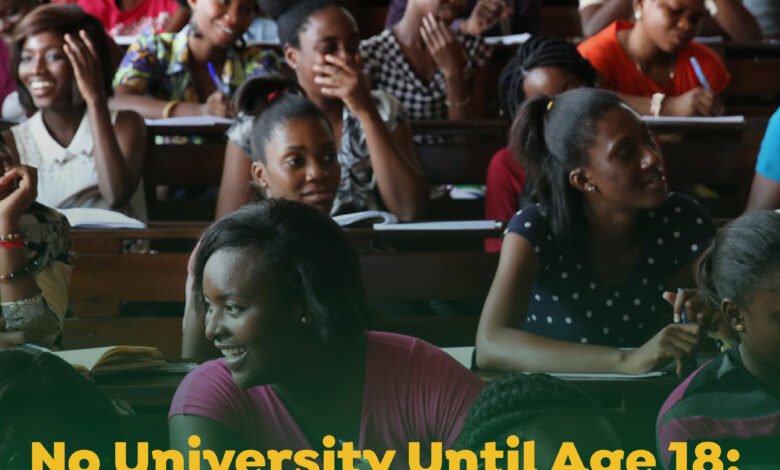
The Minister of Education, Prof. Tahir Mamman, recently set tongues wagging over his contentious remark on the age limit for admission seekers into tertiary institutions across Nigeria.
The former director-general of the Nigerian Law School hinted at the Federal government’s plan to peg the age limit for students seeking entrance into various tertiary institutions during his tour of the 2024 Unified Tertiary Matriculation Examination centers.
He said the Federal Government was considering the adoption of 18 years as the entry age for admission into universities and other tertiary institutions. “We are going to look at that. 18 is the entry age for university, but you will see students 15 and 16 going to the examination. It is not good for us.
Parents should be encouraged not to push their wards or children too much”, the Minister was quoted as saying. But mixed reactions have trailed the minister’s statement, with many saying it is a misplaced priority.
‘A Punch on the policy’
“While Nigerian tertiary education landscape is plagued with problems that demand urgent attention,” a scathing editorial by the Punch Newspaper on the subject matter posited, “the minister of Education, Tahir Mamman, seems interested in exploring a controversial policy.”
The editorial piece chided Prof. Mamman’s grounds, “noting that such a retrogressive proposal will only drag Nigeria backward in a digitalized world.” The proposed policy can exclude younger, brilliant, and self-motivated students from admission into the universities of their choice.
‘More Knocks’
An educationist, Dr. Abel Iworo, echoed Punch lines on the topic. “If a significant number of students are delayed in gaining admission to tertiary institutions due to age restriction, this may result in increased competition for limited spaces once they become eligible,” Dr. Iworo contended.
In the UK, each university set its admission bar. In Cardiff, Swansea, Southampton universities admit at age 16, while the University of Kent pegs it at 17 years. In the US, there is typically no upper age limit to enter a university, according to edvoy.com. In India, in regular universities or colleges, the minimum age requirement is usually 17 years, and the maximum age is around 23 years for most undergraduate programs.
‘ASUU for Mamman’
The Academic Staff Union of Universities threw its support behind the proposed policy. ASUU President, Professor Emmanuel Osodeke, blamed the problem of the age limit on private universities. “Before the springing up of private schools, we used to follow six years in a primary school setting, and so in secondary schools whereby before a student would get to university, he/she would have been 18 years old, just as it is being done in other civilized societies”, Prof. Osodeke recalled. But when private institutions came in, they threw that laid-down procedure aside; thereby, 12-year-olds are seen in university settings. In support, the National Assembly also said it would come up with robust legislation to support 18-year-olds as an entry limit for admission into tertiary educational institutions. Senator Muntari Dandutse, Chairman of the Senate Committee on Tertiary Institutions and TETFund, said that age should not be a barrier to tertiary educational institutions, but the age limit of 18 years, as proposed by the Minister of Education, is sacrosanct.
“Policymaking in Nigeria is largely a spontaneous, draconian, reactive, and arbitrary business,” Moses Ochonu, a Professor of African history at Vanderbilt University, US, posited. He said it is time policymakers stop addressing what is wrong and sparing what is not.”
Right balance
While there have been arguments for an against this intended policy, a more flexible approach might be the key.
Combining standardized testing with maturity assessments could ensure both academic readiness and intellectual potential are considered.
Strong support systems for younger students can further smooth their transition.
Ultimately, the goal should be a system that fosters intellectual growth regardless of age, while preparing all Nigerian youth for a secure future





